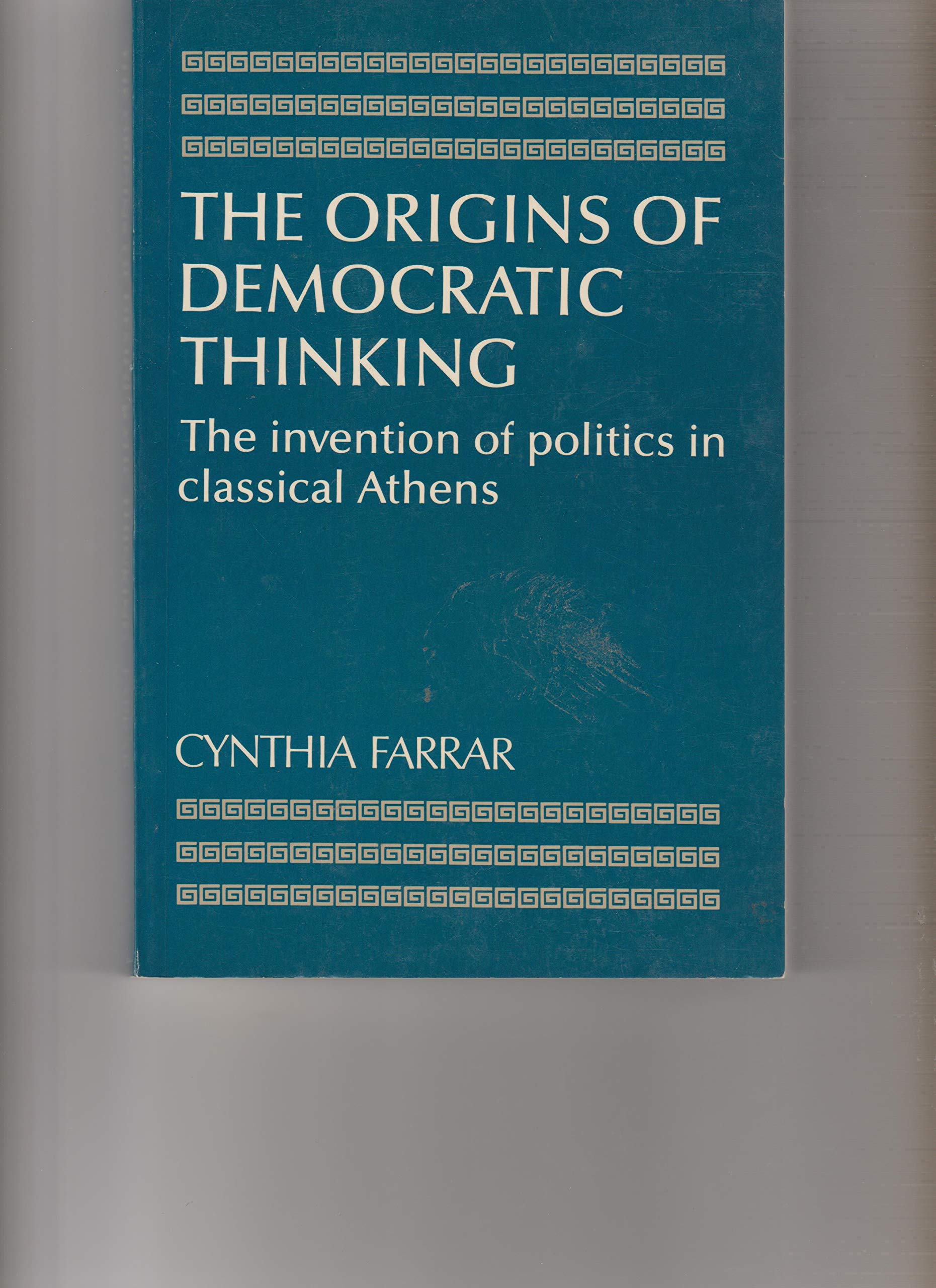

 |

|

The average rating for The origins of democratic thinking based on 2 reviews is 3.5 stars.
Review # 1 was written on 2012-06-11 00:00:00 Herbert Jacobi Herbert JacobiPolitics And The Love Of Wisdom Books find their readers as much as readers find their books. I have been reading books on political philosophy of late, including Ronald Dworkin's challenging study, "Justice for Hedgehogs". When I saw a hardcover copy of Judith Best's short book "The Mainstream of Western Political Thought" (1980) on sale at my local library, I had to have and read it. I didn't know anything about Best or her book. Judith Best has been Professor of Political Science at the State University of New York, Cortland, since 1973. She received recognition as a "Distinguished Teaching Professor" in 1984. She has become known for her work on the American Electoral College and has written about it extensively and testified before Congress. The book I am reviewing, written relatively early in her career, has a broader focus. It discusses the long Western tradition in political philosophy. A philosophical book can be both and introduction and a summary. This is the case with Best's book. As an introduction, the book offers a brief overview of competing philosophical positions involving the nature of politics and government which can be useful for undergraduates or for readers coming to the subject for the first time. As a summary, the book offers Best's understanding of how the Western political tradition in philosophy is to be understood and approached. She discusses what political philosophy is about and why it is important. The book explains the differences among various political thinkers but it also argues that apparently disparate political philosophers share many views. The book thus has the ambitious, far from introductory, goal of showing commonality in the Western political tradition. Most of the book consists of Best's exposition of great political philosophers, which she divides broadly into the camps of ancient and modern. Best devotes three good chapters to the thought of Aristotle, with substantial references to Plato. Her discussion centers on the concept of nature, and of political society, or the polis's, status as the natural condition of man. Her discussion emphasizes the role of reason, virtue, and teleology in ancient thought. Best devotes the following three chapters to "the moderns" beginning with Machiavelli and continuing, in her account, through Hobbes, Locke, and Rousseau. (Other seminally important figures such as Spinoza, Mill, Kant) are not treated.) She shows how modern thinkers rejected Aristotle's understanding of nature and teleology and developed an understanding of politics based on human convention and agreement. The "state of nature" and the "social contract" became the metaphors for understanding the basis for government in a world where people were otherwise free, equal, and unrestrained. In a brief chapter, Best discusses Marx and Nietzsche, two figures greatly opposed to each other, as representative of what she describes as the "crosscurrent". These thinkers and their many contemporary followers reject essentialism. They deny that their is a fixed content of human nature, whether of the ancient or the modern type, and argue instead that humans instead are in a state of constant change or becoming. These thinkers give rise to various historicist or interpretivist positions. These chapters of exposition are proceeded by a brief opening chapter in which Best describes the goal of political philosophy -- and of philosophy in general -- in raising questions and in testing answers rather than in arriving at certainties. In her highly interesting concluding chapter, Best tries to find commonalities among the "mainstream" (ancient and modern, but not crosscurrent) political thinkers. She describes as "the fundamental agreement" of mainstream thinkers the commitment to "law-abidingness" as "a nearly perfect duty of all citizens." (p. 133) She also develops a number of "principles of the mainstream" which, Best maintains, have a consensus in the views of most political thinkers. These principles center upon the existence of "human nature" which can be studied and understood and which forms the basis for understanding and forming political society, and the importance of the rule of law. Best writes: "Just as the disagreement over whether nature is an end or a beginning, a positive or a negative pole, marks the divergence of ancient and modern thought, so a disagreement over the existence of a human nature, a fixed, definite, fundamental intrinsic character and unchanging core, marks the divergence between the mainstream of Western political thought and its crosscurrent." (p. 133) The search of the basis of human nature, and its understanding, form the basis of Western thought and Western politics. I was fortunate to find and to be able to think about this short book. It offers a thoughtful voice in a difficult, unphilosophical time. Robin Friedman |
Review # 2 was written on 2015-09-16 00:00:00 Steven Mendez Steven MendezWhat a tricky task Best faced, trying to reduce Western political thought to a manageable 135-page subject. She succeeds, and superbly so. Choices must be made for organizing the material, and her choices are useful and illuminating. She distinguishes between Ancient and Modern thought, and she also distinguishes between the main current that flows within both Ancient and Modern thought as well as a cross-current, which is distinguishable from the main current. The book is slim, and so much is unavoidably omitted, but it really is a terrifically thoughtful condensation. (Probably Straussian, or informed by a similar approach to the material, for those who care about such things.) |
CAN'T FIND WHAT YOU'RE LOOKING FOR? CLICK HERE!!!